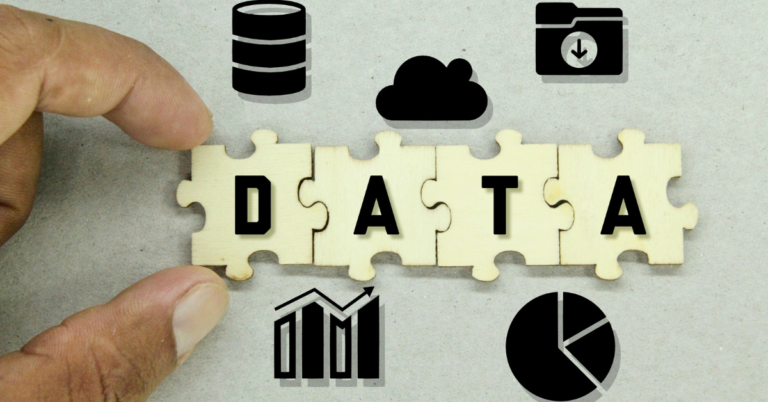
Online Data Science and Analytics Courses
Learn to extract actionable insights from complex data to inform your business decisions by taking an online course in Data Science. Master the concepts and applications of business analytics, data visualization, gamification, machine learning, and artificial intelligence to compete in this data-driven economy by choosing a program from a world-class university. Deemed LinkedIn’s most promising career, the popularity of and demand for data science jobs has been growing exponentially. According to We Forum, by 2025, as much as 463 exabytes of data are expected to be generated each day. This tendency has created a massive demand for data scientists who can use data to gain insight into the most suitable and profitable business practices. As the volume of data being generated expands, data scientists must capitalize on the opportunities to assist businesses in strategizing and planning for the future. Data science professionals must prepare to take on larger roles in using technology to drive businesses ahead.
Prepare for C-suite roles with
Senior Executive Programs
By Universities
Gain hands-on experience and launch a new career with
Professional Certificate Programs
By Universities
Accelerate Your Career With Leading Data Science and Analytics Programs
Upskill now from the world's best universities
Guide to Data Science and Analytics
Concepts: Data Science and Analytics
Data science employment is expected to grow by 36% (2021-2031). In the digital landscape, mastering Python for data science is crucial, given its widespread use. Emeritus provides top online data science courses from leading universities, imparting skills for actionable insights and informed decisions. These courses exceed industry standards, ensuring you stay ahead in the data-driven economy. Complete an online data analytics course, earning a prestigious certificate, validating your proficiency in Python and data science amidst rising demand for professionals in the field.
Data Science and Analytics Related Videos
FAQ on Data Science and Analytics
Professionals can obtain the below job roles through relevant education, practical experience, and continuous learning. Additionally, they can acquire specific skills through data science courses to enhance their chances. Various job roles reflect different responsibilities in data science and analytics. These include:
- Data Scientist
- Data Analyst
- Business Analyst
- Data Engineer
- Machine Learning Engineers
- Data Architect
Data scientists play a crucial role in extracting insights and valuable information from complex data sets. Additionally, their responsibilities include the following:
- Data scientists analyze and interpret large volumes of structured and unstructured data to uncover patterns, trends, and correlations.
- Data scientists work on machine learning and model development for vetting appropriate algorithms, preprocessing data, training, validating models, and optimizing their performance.
- Professionals are also responsible for cleaning and preprocessing data to ensure its quality, integrity, and consistency.
- Data scientists collaborate with stakeholders to identify business problems and develop data-driven solutions.
- Data scientists effectively communicate their findings to non-technical stakeholders through visualizations, reports, and presentations.
By acquiring skills and knowledge through data science courses, individuals can gain expertise in these areas and fulfill the responsibilities of a data scientist.
Professionals require several essential skills to pursue a career in data science. These include:
- Proficiency in programming languages like Python or R is crucial for data manipulation and analysis and building models.
- Skills in data cleaning, preprocessing, and exploratory data analysis are essential to ensure data quality and uncover meaningful insights.
- Knowledge of machine learning algorithms and techniques and natural language processing enables analysts to build predictive data models.
- Proficiency in data visualization tools such as Tableau or Matplotlib can enhance data presentation skills.
- Familiarity with tools and frameworks like Hadoop, Spark, and SQL is advantageous for working with large-scale datasets.
Therefore, keeping your skills updated through data science courses is crucial for career growth in this field.
It is important to choose a data science course that provides comprehensive coverage of critical concepts and skills. For instance, Emeritus offers a variety of online data science courses that are suitable for aspiring data scientists. Generally speaking, here are a few popular types of courses to consider from the Emeritus platform:
- Applied Business Analytics: This program focuses on developing data analysis, statistical modeling, and predictive analytics skills. Participants learn to extract valuable insights from data and apply them to real-world business scenarios.
- Applied Machine Learning: This course delves into machine learning principles and covers topics such as supervised and unsupervised learning, model evaluation, and feature engineering. Participants gain hands-on experience in building and deploying machine-learning models.
- Enterprise Cybersecurity: This program addresses the critical area of cybersecurity, focusing on strategies and techniques to protect sensitive data and mitigate risks. Participants learn about network security, cryptography, and incident response.
Additionally, you must review the course content and its prerequisites to select the one that aligns with your goals.
- A bachelor’s degree is the minimum requirement for an entry-level position in this field
- A master’s degree can further help in achieving senior positions at the start of your career
- Familiarity with concepts such as math and statistics can be an advantage in this field
- A basic understanding of programming languages is a definite advantage
- A keenness to understand and interpret data can be a motivating factor in this field
































